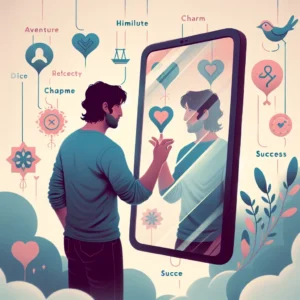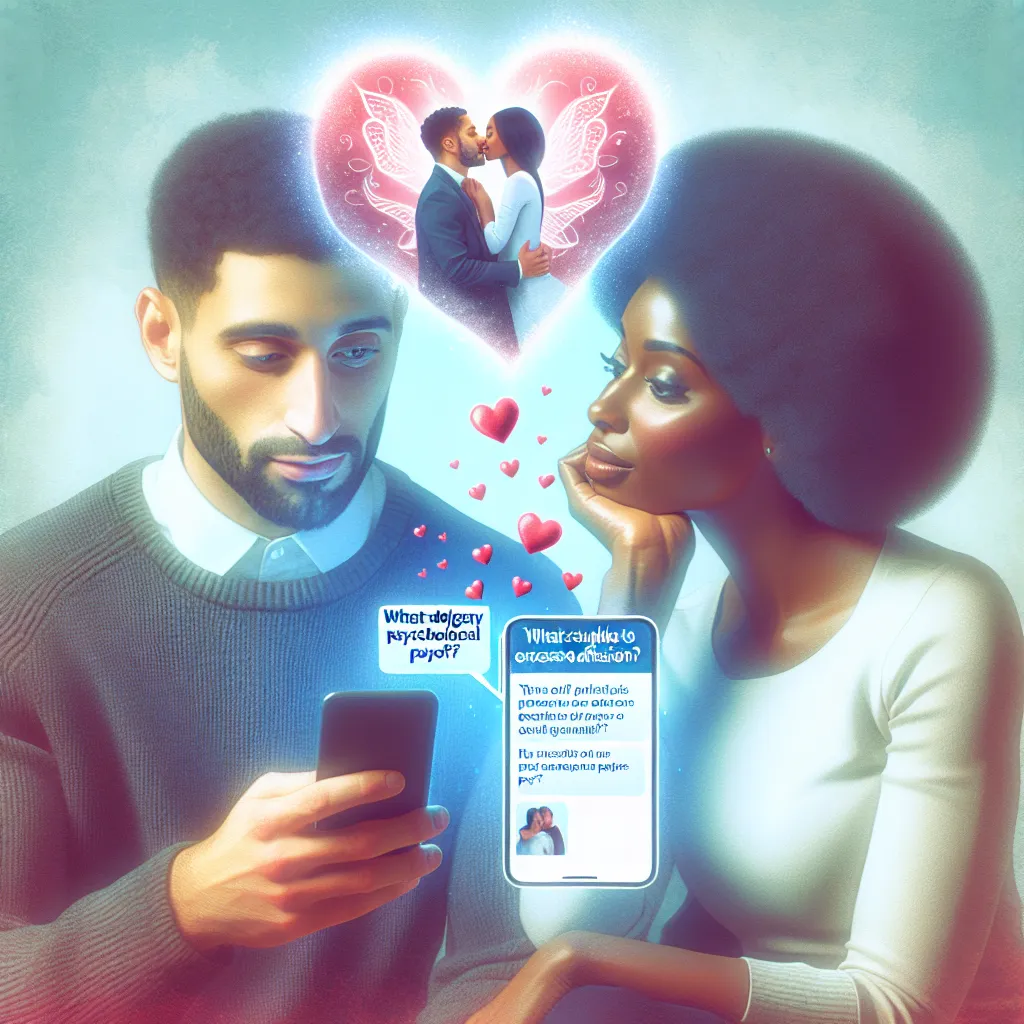Hello, relationship seekers!
Today, we’re diving deep into an important question about relationships: “What psychological motives drive someone to craft a perfect online persona for dating apps?”
The Direct Answer
The desire to create an idealized online persona on dating apps is driven by a few key psychological motives, including the need for social acceptance, the desire to control one’s image, and the fear of rejection. This phenomenon is linked to self-presentation theory, social comparison theory, and the concept of impression management.
Now, let’s explore the extensive evidence and details that support this answer:
1. The Need for Social Acceptance
The need for social acceptance is a fundamental human motivation that significantly influences our behavior.
A. Influence of Social Acceptance on Self-Presentation
People crave social acceptance, and according to self-presentation theory, we take considerable effort to control how others perceive us. This desire often leads to the creation of an idealized online persona.
– Expert Perspectives: Psychologist Mark Leary suggests that “people’s self-presentations are usually intended to make them more likable, competent, and attractive.” In the context of dating apps, users aim to present themselves in the most appealing way possible.
– Psychological Research: A study by Ellison, Heino, and Gibbs (2006) found that deception in online dating profiles is a common strategy used to attract potential partners, with users often misrepresenting their physical attributes.
– Real-World Examples: A casual scroll through any dating app will reveal profiles showcasing adventurous lifestyles, perfect bodies, and successful careers, often embellished or exaggerated to impress potential partners.
B. The Role of Social Media
The rise of social media has amplified the need for social acceptance, as it fosters a culture of constant comparison.
– Historical Context: The advent of social media has shifted the way we present ourselves. Before, our self-presentation was mostly limited to face-to-face interactions. Now, we have a broader stage to display our desired personas.
– Common Challenges: The challenge arises when the online persona clashes with reality, leading to disappointment and disillusionment.
– Practical Applications: To avoid this, be authentic in your online presentation. Honesty is more likely to lead to meaningful connections.
2. Desire to Control One’s Image
The desire to control one’s image is another powerful motivator for creating a perfect online persona.
A. Image Control and Self-Esteem
The way we perceive ourselves is directly linked to our self-esteem, and presenting an idealized image can boost our confidence.
1. Control Over Perception: Online platforms give users control over how they’re perceived. This control can be empowering, as it allows individuals to highlight their best attributes.
2. Self-Esteem Boost: By crafting an idealized persona, some individuals may experience a boost in self-esteem as they receive validation from others.
3. Perception and Reality: However, this can cause a disconnect between one’s online persona and their real-life identity, potentially leading to negative psychological effects such as lowered self-esteem.
B. Impression Management
Impression management, a concept introduced by sociologist Erving Goffman, is also relevant to this discussion.
– Goffman’s Theory: He likened everyday interactions to a theatrical performance where we play certain roles to control others’ impressions of us.
– Online Impression Management: On dating apps, users might exaggerate or fabricate aspects of their lives to create a desired impression.
3. Fear of Rejection
The fear of rejection is another fundamental psychological motive that influences our behavior, particularly in the context of dating.
A. Fear of Rejection in Online Dating
Online dating can amplify fear of rejection due to the inherent uncertainty and anonymity.
– Online Rejection: Rejection in an online context can feel more intense due to the volume of potential partners and the ease of dismissal.
– Creating a Perfect Persona: To mitigate this fear, individuals might craft an idealized persona they believe is more likely to attract matches.
B. Counter-Arguments
Some might argue that crafting an idealized persona is a harmless way to boost confidence in the dating world. However, it’s important to consider the potential negative impacts, such as creating unrealistic expectations or fostering deceit in relationships.
C. Future Possibilities
As virtual interactions become increasingly common, understanding the motivations behind our online behavior is more important than ever. The future might bring new technologies or norms that could further influence how we present ourselves online.
4. Additional Context and Considerations
While the above points cover the main motives, it’s crucial to remember that individual motivations can vary widely based on personal experiences, values, and goals.
Conclusion: The Definitive Answer
Based on all the evidence we’ve examined:
– The Need for Social Acceptance: This fundamental human need drives us to present ourselves in a way that is likely to attract positive social attention.
– Desire to Control One’s Image: Online platforms provide a unique opportunity to control how we’re perceived, which can be both empowering and potentially misleading.
– Fear of Rejection: The fear of rejection in the online dating world can motivate individuals to present an idealized image of themselves.
In conclusion, the psychological motives driving someone to craft a perfect online persona for dating apps include the need for social acceptance, the desire to control one’s image, and the fear of rejection. Understanding these motives can provide insight into our own behavior and help us navigate the online dating world more authentically and effectively.



